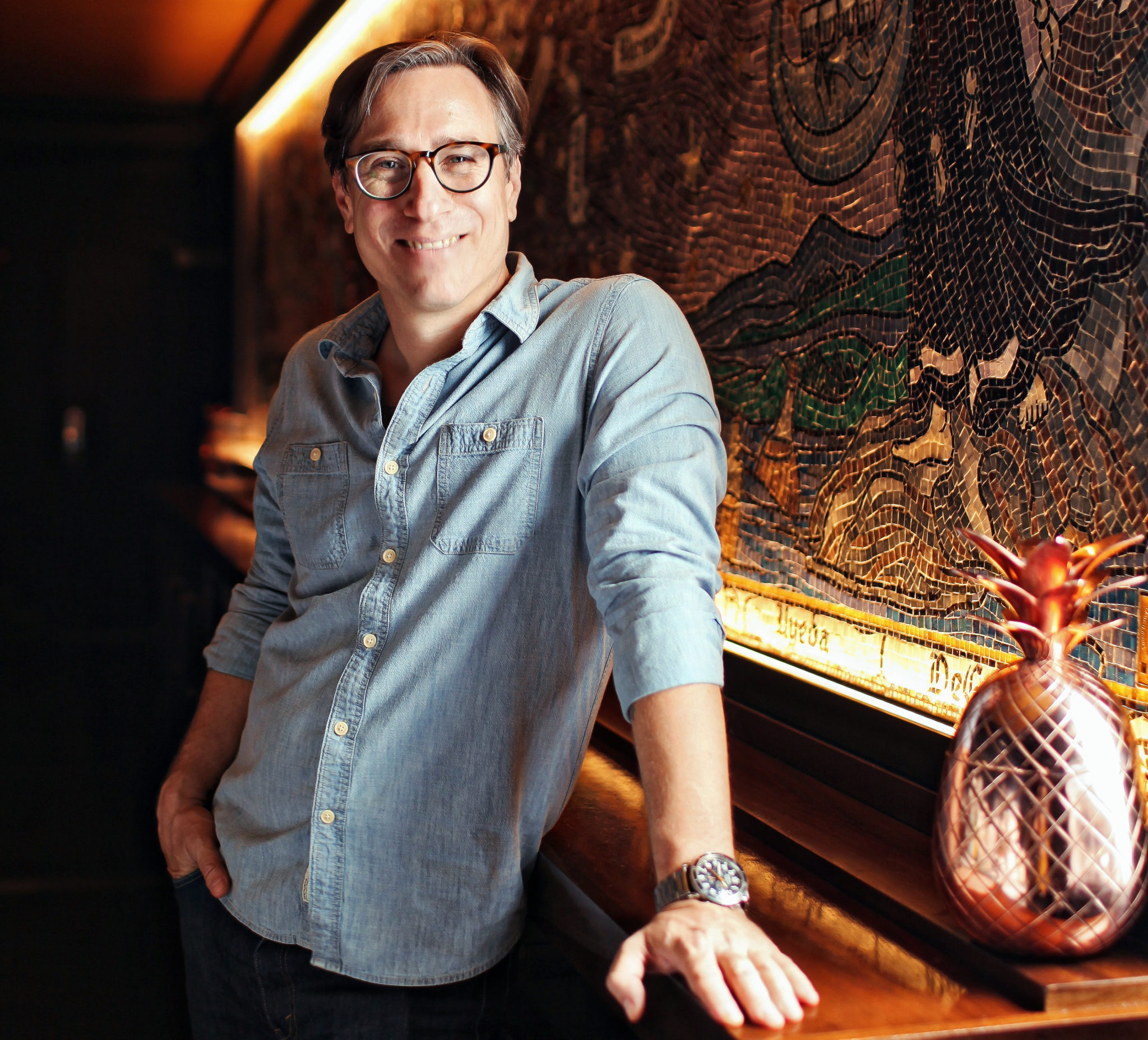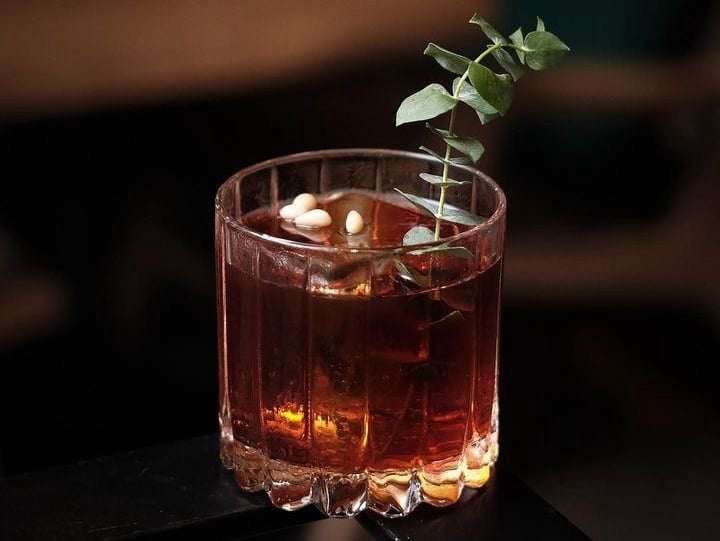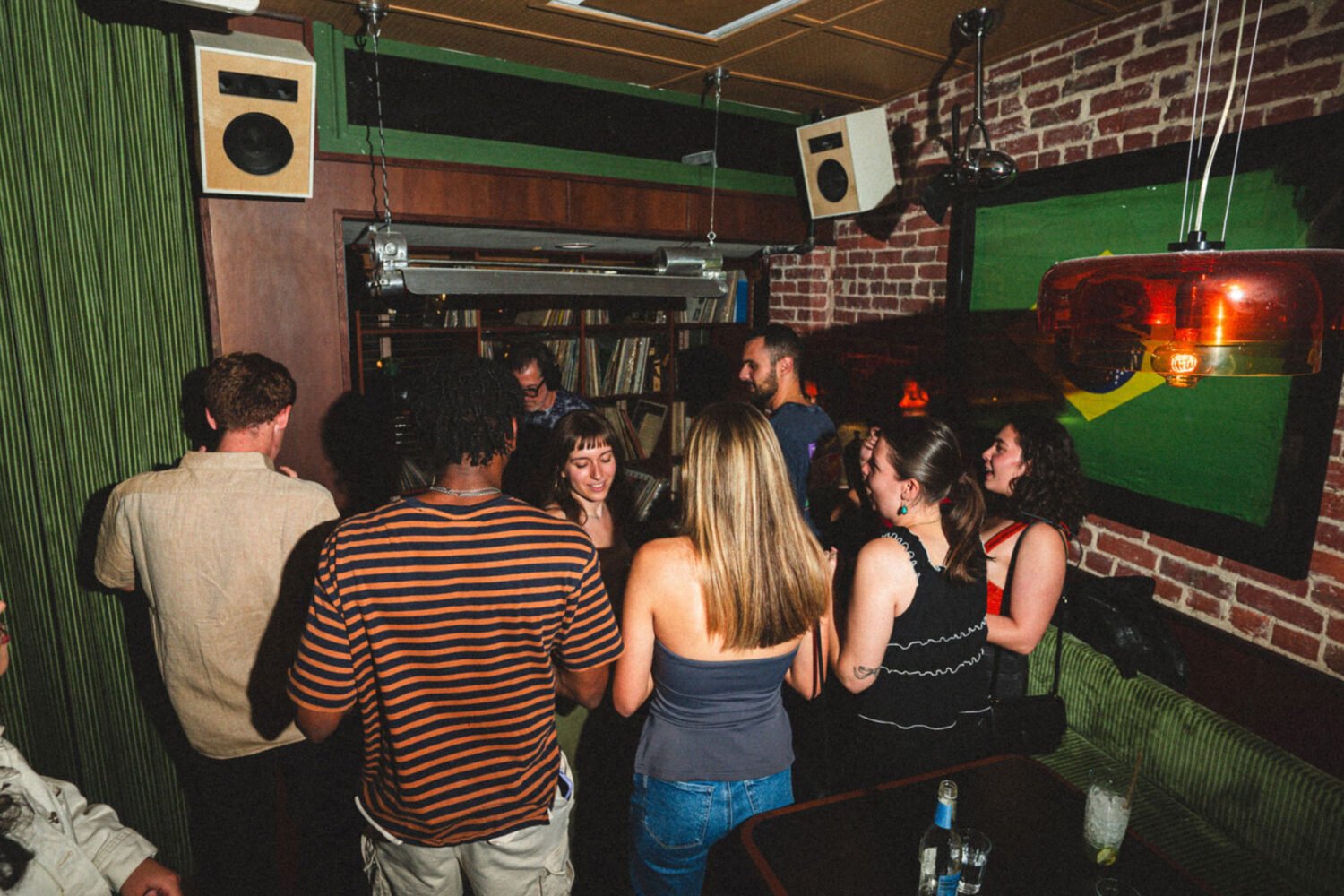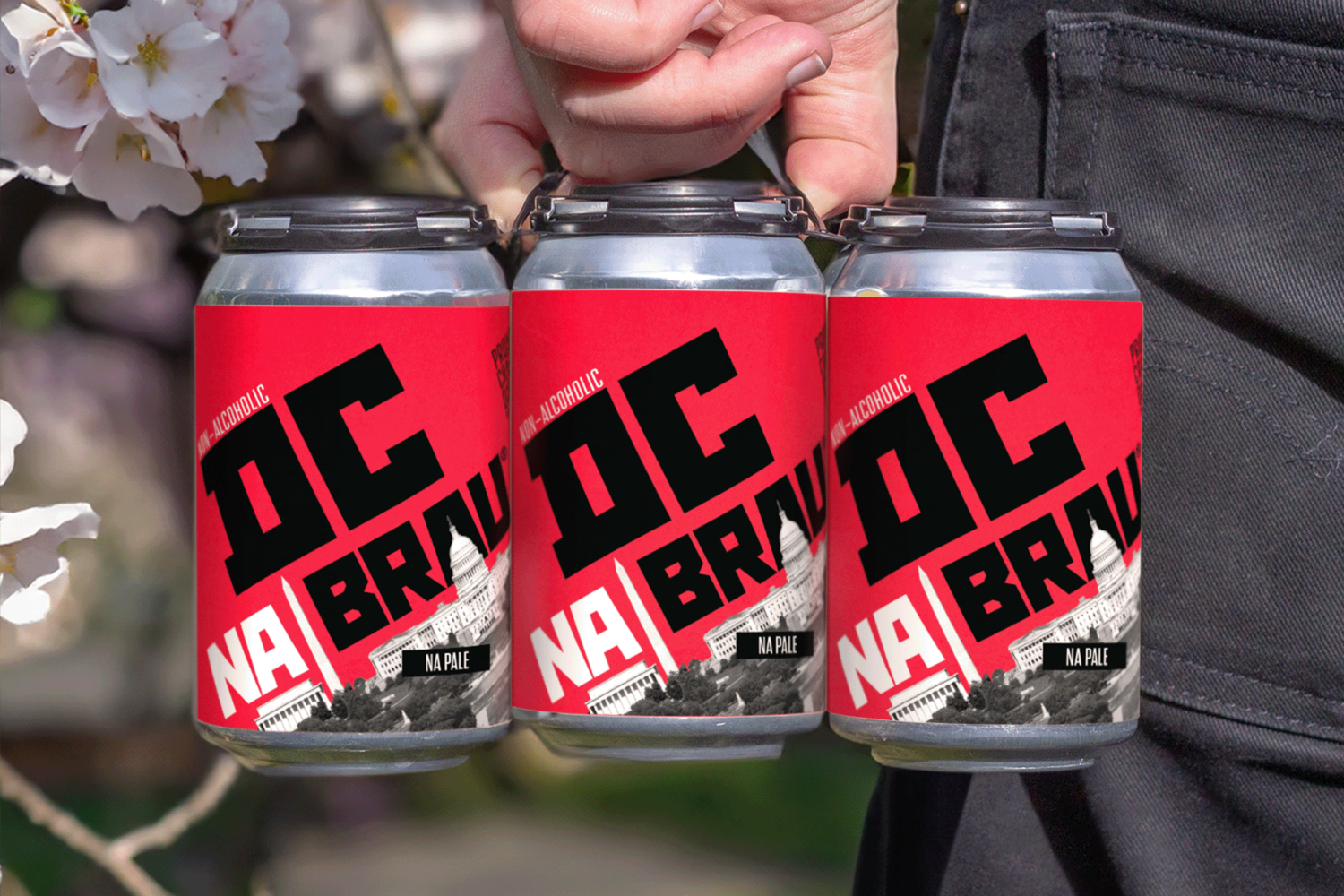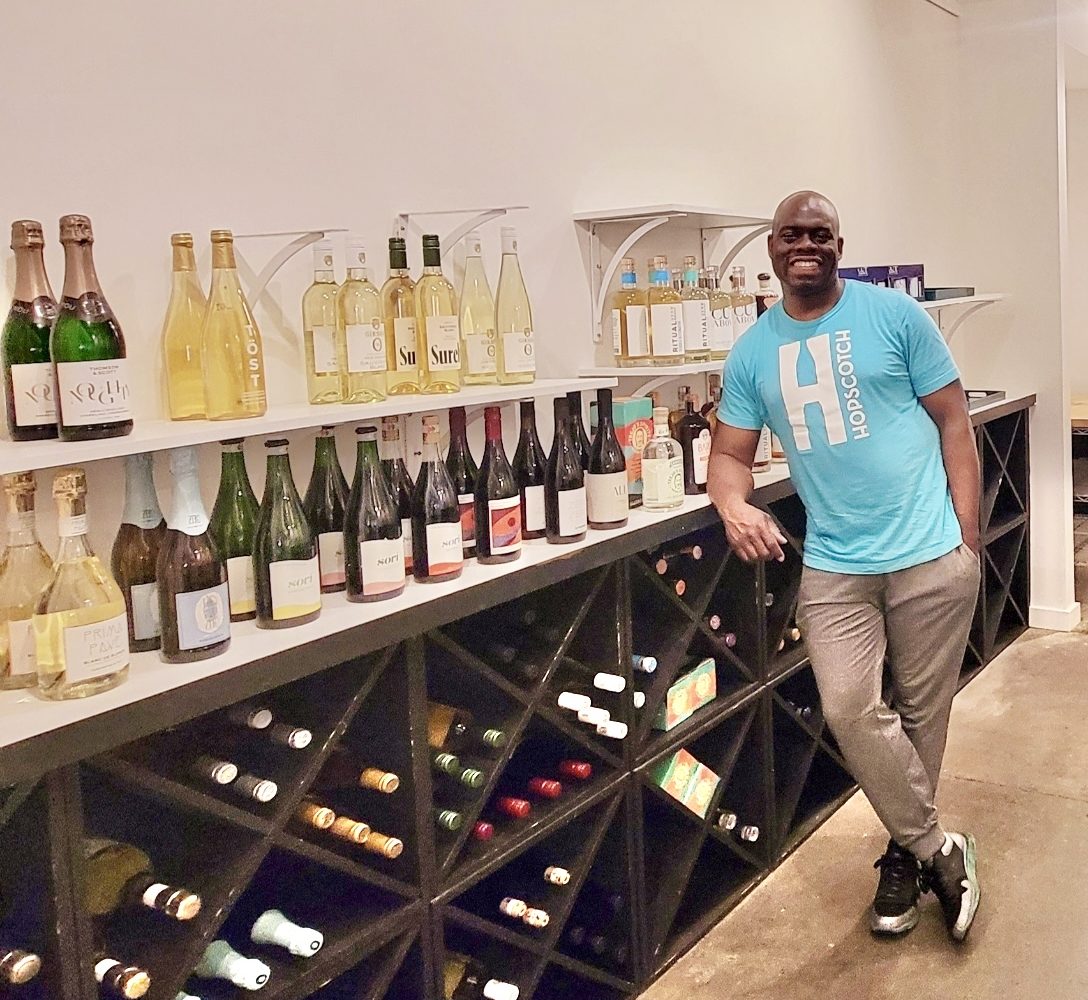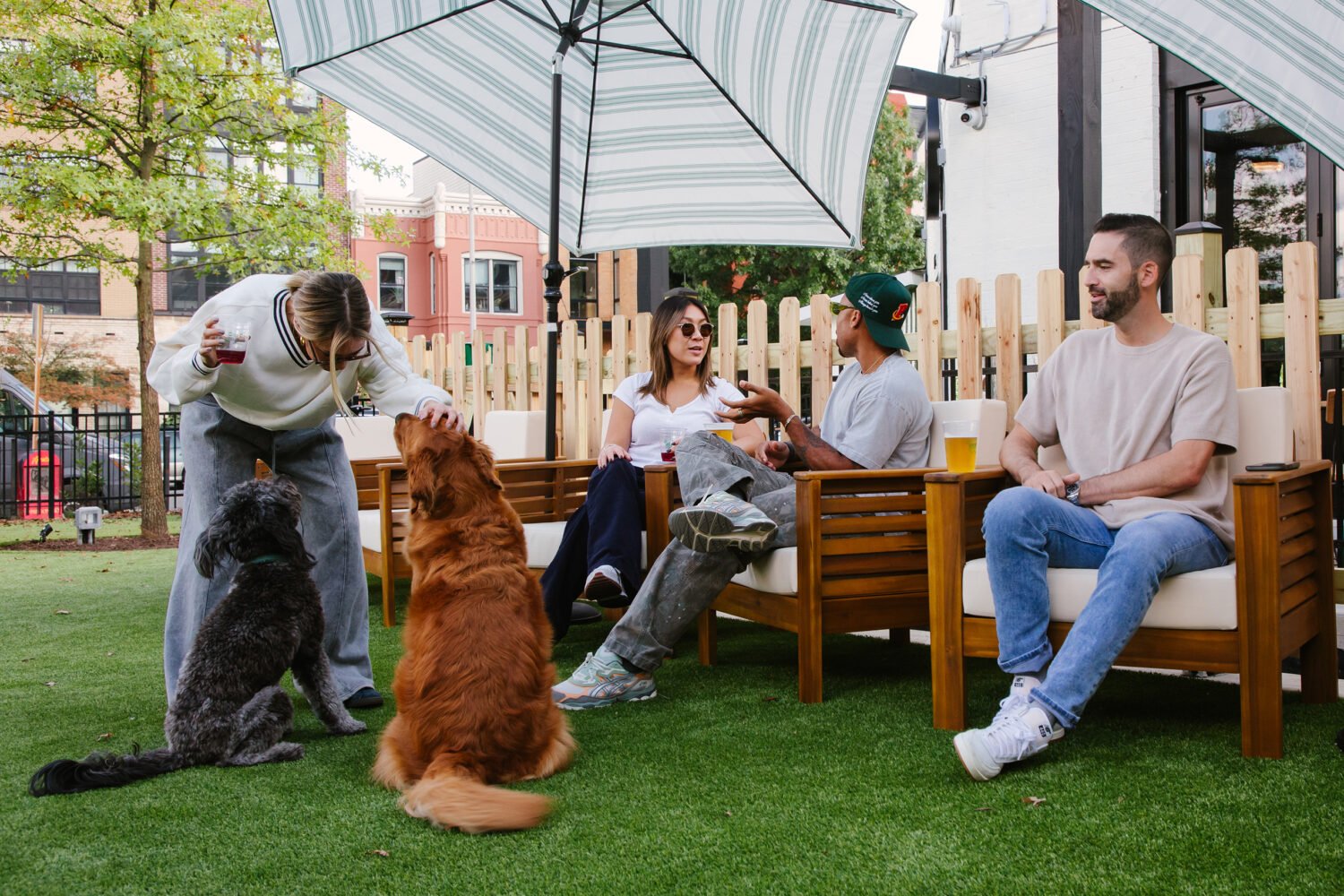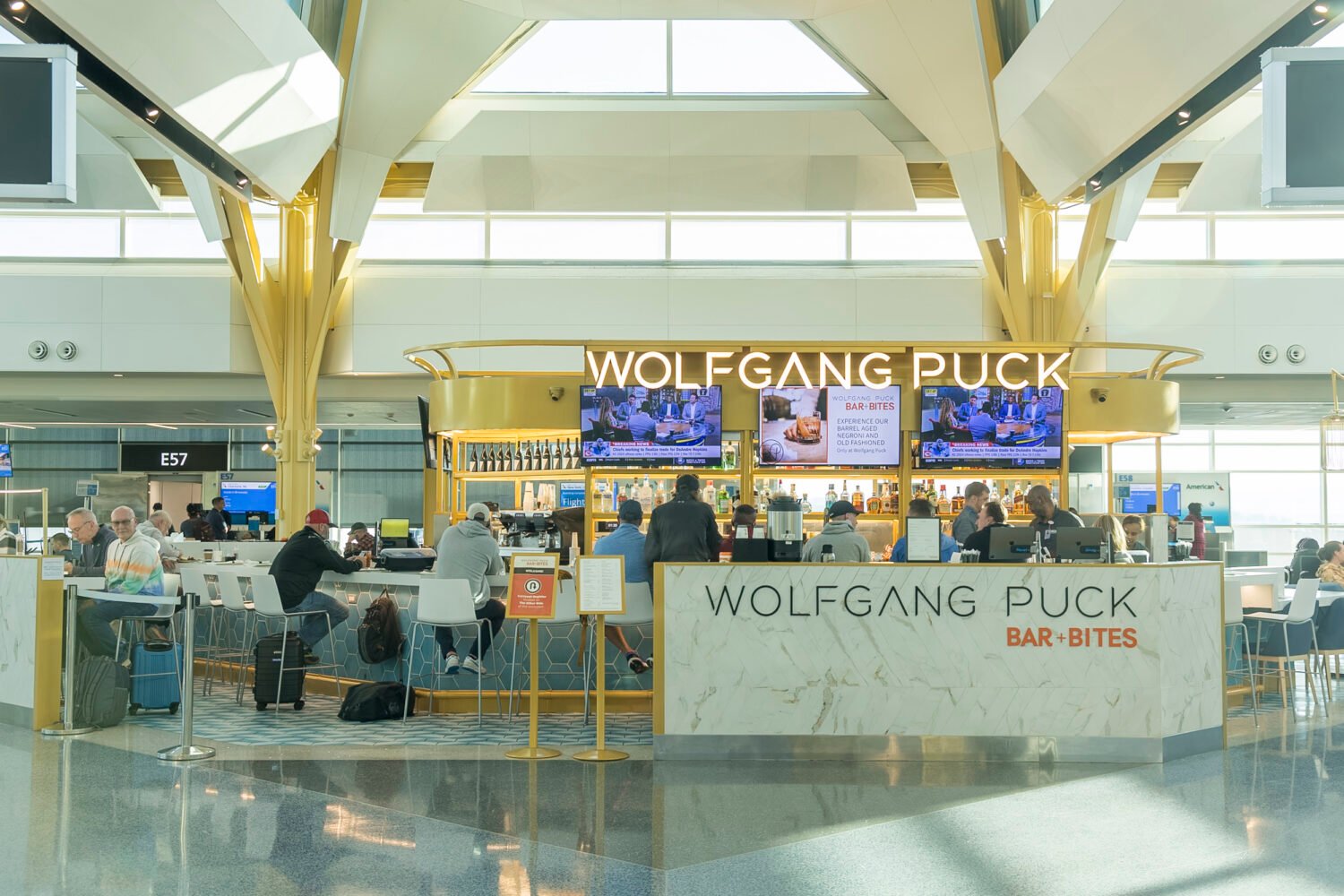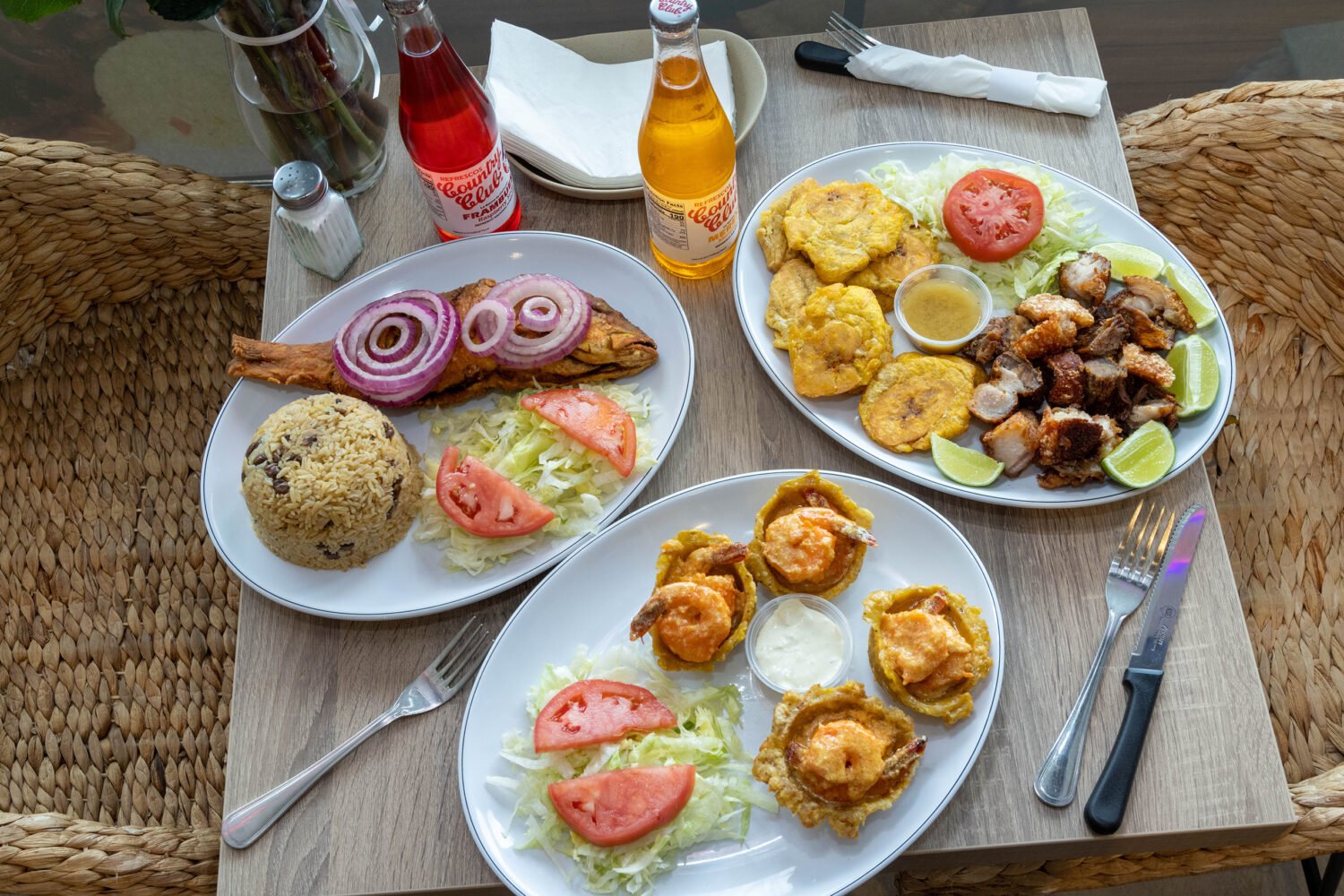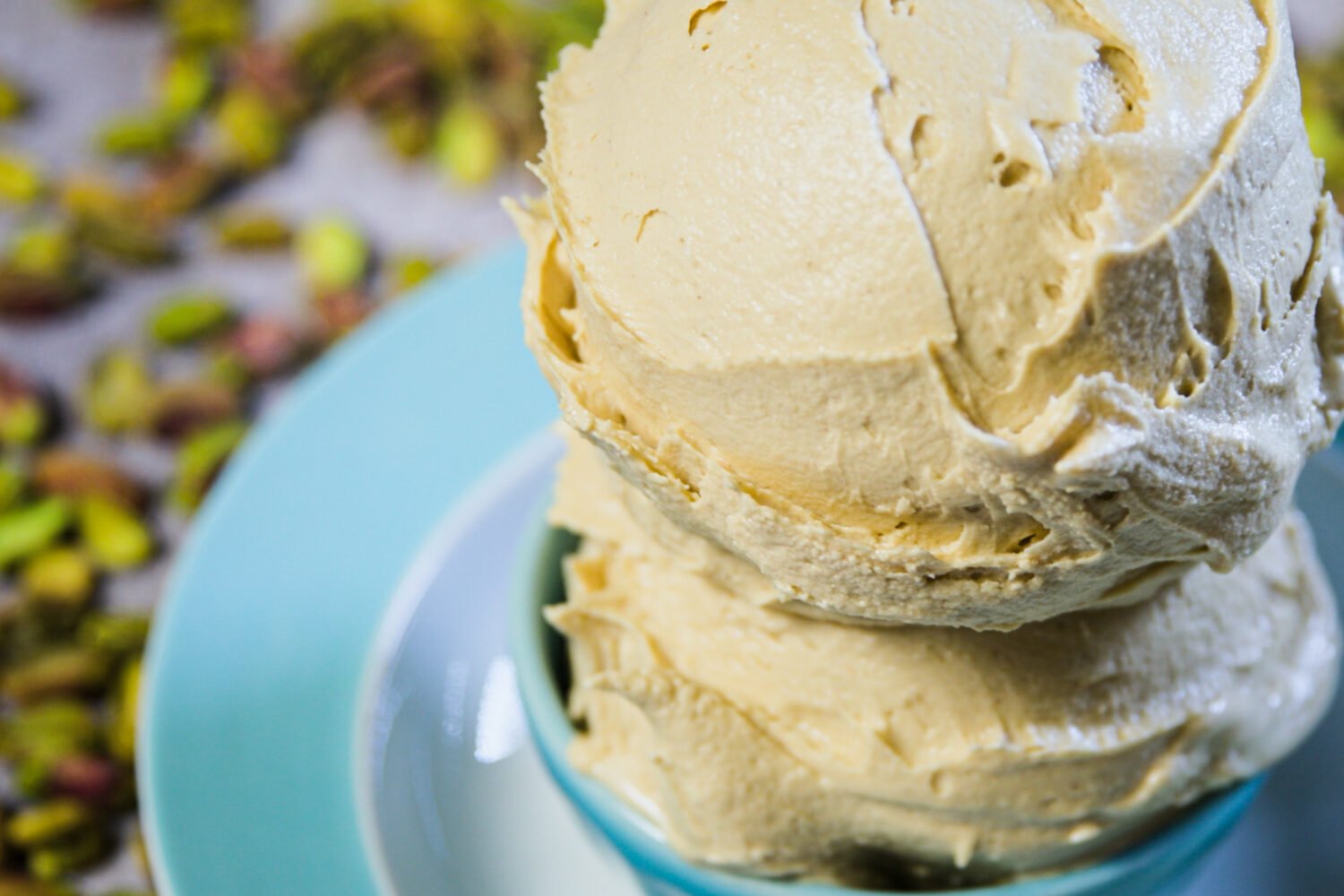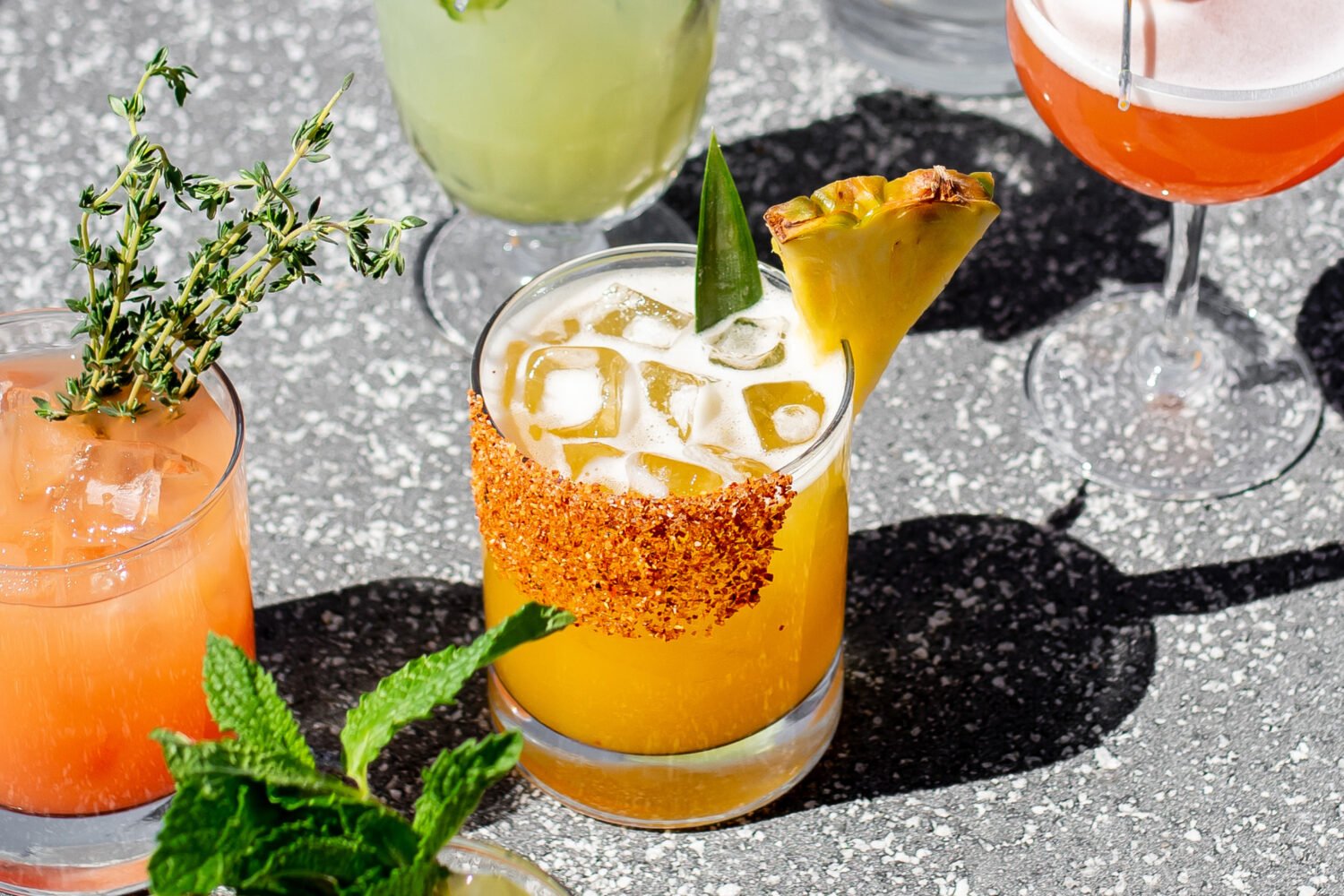Derek Brown is behind one of the country’s top cocktail bars (Columbia Room) and some of the city’s most popular pop-ups (remember the Game of Thrones bar?). He’s hailed as a pioneer of DC’s modern bar scene and a tastemaker for what’s cool to sip.
But while the pandemic has bolstered demand for an extra-strong drink, Brown is offering something else entirely. These days, he’s more often touting a zero-proof “whiskey analog” or a non-alcoholic rosé. He’s writing another cocktail book, only this one is focused almost entirely on recipes without booze. In a typical month, he indulges in just two alcoholic drinks—if that.
“I was a person who was supposed to be an example of the good life—drinking, enjoying yourself,” Brown says. “But honestly, it was making me miserable and I was in a desperate battle with my mental health. I wasn’t sure I was going to make it.”
When Brown first started bartending, it wasn’t unusual for him to work until 3 AM, then drink until the cleaning crew arrived the next morning. He’d start doing shots with guests during his shift—nothing too crazy—then down a few more drinks by close, and spend the early hours passing around bottles with friends. There were periods when he was drunk every day for weeks on end. His “hangover kit”—Ibuprofen, Gatorade, and ramen noodles—was always stocked.
“At one point in time, I had all the trappings of a rock star except international fame, you know? And what I mean by that is that we lived for the late nights,” Brown says.
In his 20s and early 30s, that was fine in some ways. But over time, the now-46-year-old’s life started getting out of control. He got divorced. His health and finances were a mess. And he’d later learn he had bipolar depression, something that was easily masked by the frenetic, risk-enabling bar industry, where symptoms of heavy drinking and mental illness often mirror each other. The birth of his son made him think more about his well-being and “who I was really.”
In 2016, Brown started therapy, and in 2018, he was admitted to an outpatient program at Inova Behavioral Health Services in Fairfax. While treatment helped him reprioritize his life, it was also “humiliating.” He didn’t know how to reconcile his drinking problem with his success in the bar industry.
“I felt uncertain how to address it,” he says. “I was confused. I didn’t know if I could continue working in this line of work. I didn’t know how I could tell people that I had fucked up. I felt like I was letting people down. I had let people down. But at the same time, it was a good place because it was the start to reevaluating my life without alcohol and what it could be.”
In the end, Brown says he found family, friends, and fans overwhelmingly supportive. And ultimately, he found—in his case at least—he didn’t need to abstain completely: “As soon as I started addressing my mental health, then alcohol became something entirely different for me. So I was able to step back and focus on the right things, and the result is that I didn’t stop drinking, but I cut it out mostly.”
Brown sat down with his business partners and told them he didn’t think he could spend as much time at the bars in the evenings. He focused instead on writing a book on cocktail history, Spirits, Sugar, Water, Bitters.
Brown says he’d never been dismissive of non-alcoholic cocktails; His former business partner Angie Fetherston doesn’t drink, after all. But he had yet to really embrace his sorta-sobriety with his work. Conversations with New York writer Julia Bainbridge—who just released Good Drinks, a book devoted to spirit-free beverages—and Brown’s partner Maria Bastasch, a sommelier who highlighted the connection between health and herbs and drinks, helped him see the potential.
“I realized, well, this is my job, this is what I’m good at, I can still do it,” he says.
At Columbia Room—pre-pandemic, at least—Brown’s team started to do more to promote the spirit-free version of its cocktail tasting menu, even going so far as to create a virgin Long Island Iced Tea. Brown also gained the courage to be more open about his own story. Earlier this year, he wrote a personal essay for Vox about his alcoholic father (who left the family when Brown was a toddler), the “dumb things I did drunk,” and tackling his mental illness and alcohol abuse through therapy and prescription medication.
Now Brown is working on a book called Mindful Mixology, which will include 60 low- and no-alcohol recipes, and also aims to teach people about the DNA of a great spirit-free cocktail. It’s slated to publish in January 2022.
For Brown, it’s not necessarily about getting people to give up booze. It’s about offering another option. And lucky for him, his personal journey toward more mindful drinking has happened to coincide with a national “sober curious” movement, propelled by the booming wellness industry. There’s a plethora of new alcohol-free beers, spirits, and even wines (which actually range from ciders to seed buckthorn juice), and bars beyond his own have started putting serious time and energy into what non-drinkers are drinking.
“I’m not here to undermine my previous role or to hype my new role, necessarily,” Brown says. “I still just want people to drink better. Nothing’s changed—except me.”

